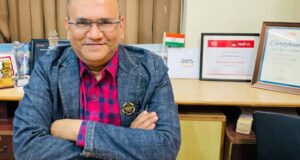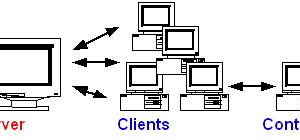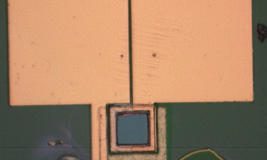Read all about it…
For three days in May (28, 29, 30), the normally tranquil Duke University Campus was transformed into a raucous playground for geeks and hackers as the Fourth Annual Linux Expo was held at Duke’s Bryan Center.
By all accounts, this year’s Expo was a smashing success. Red Hat’s Marketing Director, Lisa Sullivan, deserves special thanks for organizing and directing the event. Many others, from Key Note Speaker Linus Torvalds to the blue-shirted Duke University catering staff, were instrumental in making it a memorable three days.
According to Sullivan, approximately 1500 visitors were registered as paid attendees, while another 350 to 500 were registered as speakers, VIPs or other gratis attendees. Attendees ranged from as far away as Korea, Finland, Colombia and Alaska. Some 34 exhibitors showed their products and services.
The speakers included:
- Eric S. Raymond gave an inspired, scholarly overview of hacker motivation in his “Homesteading the Noosphere” speech.
- Miguel de Icaza, despite troubles with the overhead projector, shared much about the technical details and future features of “GNOME, The GNU Network Object Model Environment” GUI.
- Mark Mathews described his success as a consultant and Linux programmer in his talk, “Developing Linux Software for Fun—Turns into Profit”.
- Jon “maddog” Hall described his encounters with Linux users worldwide during “Linux Around the World”.
The exhibitors included:
- Corel Computer Corporation displayed their new Linux-based NetWinder Network Computer.
- Digital Equipment Corporation exhibited their latest generation Alpha processors.
- Linux Hardware Solutions showed off some of their line of, well, Linux hardware solutions.
- Caldera, Red Hat and Turbo Linux were there presenting their latest Linux distributions.
Of course, the single most popular event was Friday evening’s keynote address by Linus Torvalds. An estimated 1000 to 1200 folks were on hand. In his typically unpretentious, casual and brutally honest style, Linus filled us in on his future vision for the Linux kernel. Linus first took a moment to thank everyone who has helped him with the stable kernel releases, especially Alan Cox. Linus went on to say he is happy with the way Linux is going, especially with the way new markets are opening up and new applications are being made available.Here are some highlights of Linus’s views on important topics for the future of the Linux Kernel:
- The 2.2 release: look for a code freeze in about a month with the next stable release, Kernel 2.2, to follow as soon as late July or early August.
- SMP: Symmetrical Multi-Processing is currently one of Linus’s favorite features of the kernel; expect continued development and enhancement of SMP in future releases.
- Merced: Linus is not particularly impressed with or concerned about Intel’s upcoming 64-bit processor, code-named Merced—he actually prefers DEC’s Alpha architecture. He did say porting Linux to Merced should be no problem once GCC is optimized for Merced.
- Java: While Linus would like to see an officially supported Java Development Kit from Sun, he is still not impressed with Java and would prefer to stay out of the Microsoft/Sun clash over Java purity.
- Emulation: Linus would prefer to see native Linux applications and does not like the idea of emulating other operating systems for the purpose of running applications.
Of course, Linus had much more to say, but the gist of his speech was that with more time and some more good luck, Linux will continue to move towards complete world domination. Judging from the air of excitement and the buzz of optimism pervading this year’s Linux Expo, Linus is exactly right.
Editor Wars! by Eric Raymond
 Linux, Linux OS, Free Linux Operating System, Linux India Linux, Linux OS,Free Linux Operating System,Linux India supports Linux users in India, Free Software on Linux OS, Linux India helps to growth Linux OS in India
Linux, Linux OS, Free Linux Operating System, Linux India Linux, Linux OS,Free Linux Operating System,Linux India supports Linux users in India, Free Software on Linux OS, Linux India helps to growth Linux OS in India



